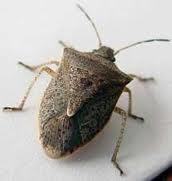Tree pests are a constant-growing issue in the United States. Each year new and invasive species get introduced to different parts of the country and the results can be devastating. Massachusetts and other parts of the Eastern United States has quite a few pests that are common in the area. The Gypsy Moth is one of the most common pests to hardwood trees. Since 1980, the gypsy moth has defoliated close to a million or more forested acres each year. In 1981, a record 12.9 million acres were defoliated. This is an area larger than Rhode Island, Massachusetts, and Connecticut combined (source: About.com-Forestry).
Other common tree pests in Massachusetts include:
- Winter Moth. This moth is known to destroy oaks, maples, basswood, white elm, crab-apple, apple, blueberry, and cherry trees. Adult moths emerge in late November and can be active until January. After mating, the female moths lay egg clusters on tree branches and under bark. The larvae will appear in March and tunnel into buds and devour them and then move on to the next bud. The older larvae feed on foliage. In areas where winter moths are a large problem, they are known to completely defoliate the host plant.
- Asian Long-horned Beetle. This beetle feeds on maple, horse chestnut, birch, poplar, willow, and elm trees. The female beetle will chew a dime-sized oval groove into the bark to deposit her eggs. The larvae damage the tree by eating the layer beneath the bark which creates hollow galleries in the wood. A key indicator of an issue with the tree and this beetle is if there is sawdust around the base on the ground or on the branches where the adults have exited from the tree.
- Brown Marmorated Stink Bug. This insect was accidentally imported from Asia and has been creating problems ever since. The insect is a problem for many shade and fruit trees, vegetables, and legumes. Adults emerge in April and eggs are laid in clusters on the under-sides of leaves from June through August. Aside from being pests to trees and plants in the warmer months, this insect can become a huge nuisance to homes and buildings in the winter when they use them as overwintering sites.
There are certain precautions you can take to control tree pests. For questions please don’t hesitate to contact us at: 508-384-2992 or click here to reach us on the web.


